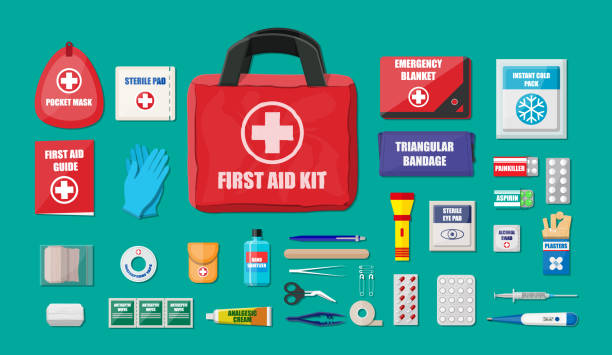
While it might sound a little dorky to pack a first aid kit for your trip, having emergency supplies handy will be anything but dorky if you need them. Accidents happen all the time in everyday life. Vacations can be accident magnets because people are enjoying their adventures to the fullest. Before you head off on your next trip, take a moment to make a first aid kit with all the things to solve life’s little problems.
- Get a small pack or bag or something to house all of your first aid materials. It can say First Aid, or it can be something cute and personal.
- Antiseptic wipes are vital to disinfecting scrapes and wounds to keep infection at bay. Individually wrapped kind are best because they ensure sanitation.
- Antibacterial cream is good to put on after disinfecting and before a bandage.
- Bandages or Band Aids. You’ll want some of all sizes for anything from a tiny paper cut to a knee gash. Non-latex are a great way to go in case you help someone who has a latex allergy.
- Gauze, the non-stick variety, is perfect for padding sensitive booboos, stopping minor bleeding, or dressing larger wounds. Sterile individually wrapped gauze sheets are convenient to pack but also best to keep away infection.
- Antihistamine cream will keep itching to a minimum if you come in contact with poison ivy or bug bites.
- Surgical or medical tape. This is helpful for securing gauze. You can even secure band aids with tape when they are cover joints or hard to secure spots.
- Tweezers are often forgotten, but they are great for getting out splinters and other debris which can get caught in wounds. You should always wipe them with an unused disinfectant wipe before and after using them.
- Loperamide or Imodium stops diarrhea for small periods of time, which can help in a pinch.
- Pain relief or anti inflammatory medication is good to have on hand to help keep mild pain away. Try and find the individually wrapped or travel sized bottles so you’re not carrying around 500 pills.
- Ace bandages are good for a variety of reasons. They can stabilize a sprain or secure gauze on larger wounds. Just one will do.
- Condoms are not only good for protecting against STDS and pregnancy. They can be used to hold ice for an impromptu ice pack.
- Scissors are helpful but not completely necessary. You can trim bandages and gauze with them.
First aid kits are a great resource to have on hand every day but especially on travels. Small injuries can be quickly and easily taken care of with a first aid kit. Not only will it help you, but it can also help other people you encounter on your travels. Who knows, they might even become your friends!
